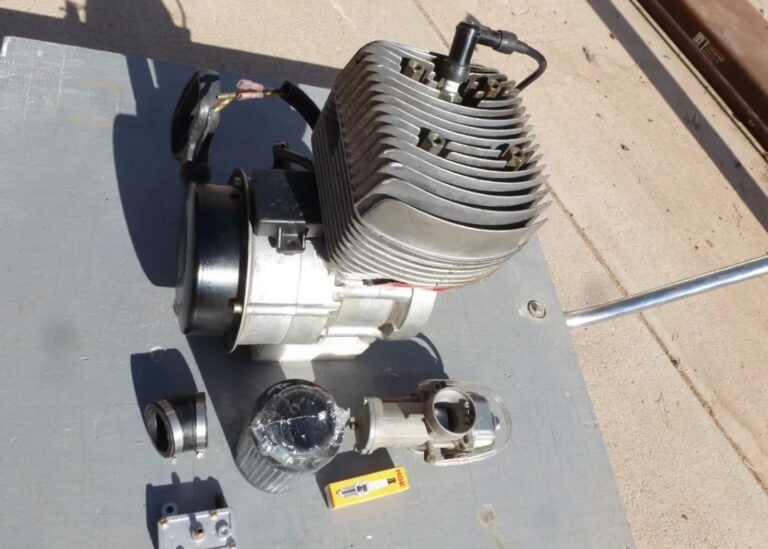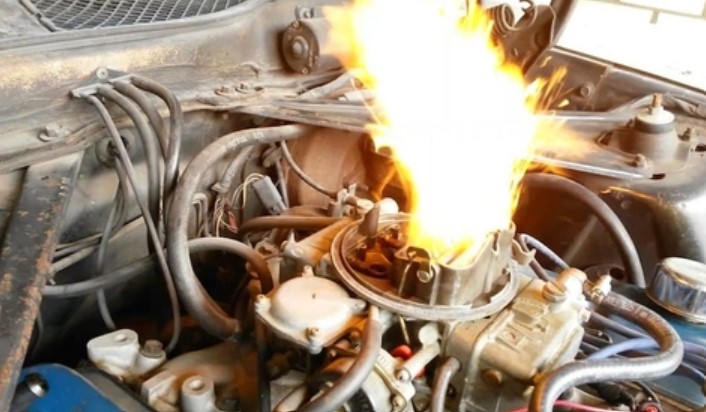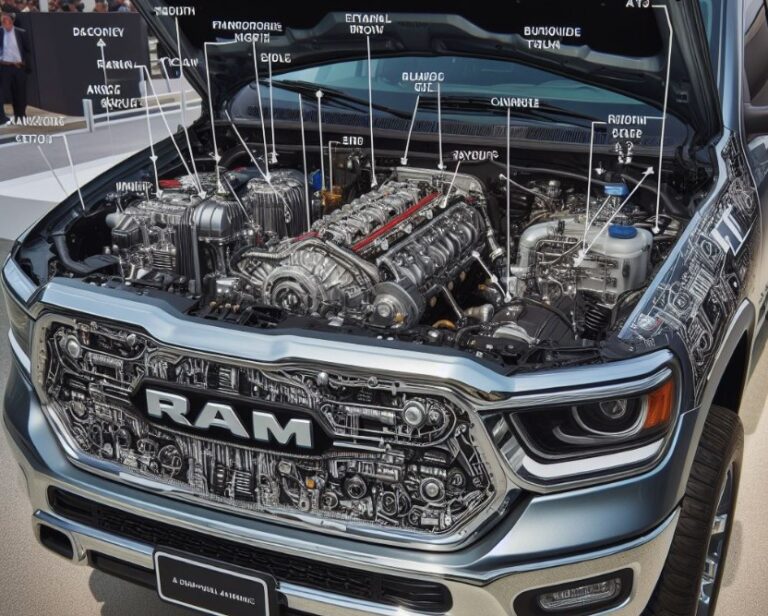What Does A Hydrolocked Engine Sound Like? Answered
Are you looking for What Does A Hydrolocked Engine Sound Like? This question often arises among vehicle owners and mechanics. A hydrolocked engine occurs when liquid, usually water, enters the engine cylinders, preventing the pistons from moving. Recognizing this sound is key to addressing the problem before it escalates. Understanding the signs of a hydrolocked engine is crucial for vehicle maintenance and safety.
Key Takeaways
- A hydrolocked engine typically makes a distinct, abrupt halting sound.
- There may be a loud banging or knocking noise.
- The engine often fails to start or stops suddenly.
- Immediate attention is required to prevent severe damage.
What Does A Hydrolocked Engine Sound Like?
A hydrolocked engine produces a unique sound that is a telltale sign of trouble. This sound is characterized by an abrupt stopping of the engine. It’s like a sudden cessation of all movement, which is quite different from the usual engine noises.

Characteristics of the Sound
- Sudden Stop in Engine Activity: Unlike a gradual dying out, the engine stops abruptly.
- Loud Banging or Knocking: This sound can sometimes be heard, indicating severe internal damage.
Causes and Prevention
Understanding what leads to hydrolocking is essential for prevention. The primary cause is water entering the engine, often through the air intake or a cracked head gasket.
How to Prevent Hydrolocking
- Regular Maintenance: Ensuring that all engine seals and gaskets are intact.
- Avoiding Deep Water: Steering clear of waterlogged areas can prevent water from entering the engine.
The Immediate Aftermath of Hydrolocking
Once a hydrolocked engine is detected, it’s crucial to stop the engine immediately. Continuing to attempt to start the engine can cause irreparable damage.
Steps to Take
- Turn Off the Engine: Prevent further damage by stopping the engine as soon as possible.
- Seek Professional Help: A mechanic can assess the extent of the damage.
Diagnosing a Hydrolocked Engine
Diagnosing a hydrolocked engine involves checking for the presence of liquid in the combustion chamber. This process usually requires the expertise of a professional mechanic.

Diagnostic Techniques
- Removing Spark Plugs: Allows the liquid to be expelled from the engine.
- Inspection of the Internal Components: Checking for any signs of damage or water entry.
Repairing a Hydrolocked Engine
Repairing a hydrolocked engine can be a complex and costly process. The extent of the repair depends on the severity of the damage.
Repair Options
- Minor Cases: Involves expelling the liquid and drying out the engine.
- Severe Cases: May require complete engine overhaul or replacement.
Long-Term Effects of Hydrolocking
The long-term effects of hydrolocking can be quite serious, affecting the engine’s performance and longevity.
Potential Long-Term Damage
- Engine Wear and Tear: Prolonged hydro-locking can lead to significant engine damage.
- Decreased Engine Life: The lifespan of the engine may be significantly reduced.
Will A Hydrolocked Motor Turn Over?
In most cases, a hydrolocked motor will not turn over. When a liquid enters the combustion chamber, it prevents the pistons from moving as liquids are incompressible.

This resistance can be so significant that it might even stop the crankshaft from turning. In scenarios where the amount of liquid is minimal, the engine might turn over slowly or with difficulty, but this can cause further damage.
Attempting to start a hydrolocked engine can lead to bent or broken internal components like connecting rods, which can escalate repair costs and complications.
Can You Drive A Hydrolocked Engine?
Driving a hydrolocked engine is not possible and attempting to do so can cause severe damage. Once the engine becomes hydrolocked, it stops functioning immediately.
Any efforts to start or drive the vehicle can result in significant mechanical damage. It’s crucial to stop the engine as soon as hydrolocking symptoms are noticed to minimize harm. The engine should be inspected and repaired by a professional before the vehicle can be driven again.
How Easy Is It To Hydrolock A Car?
Hydrolocking a car can happen more easily than most people think, especially in certain conditions. Cars are most at risk in situations involving driving through deep water, like flooded streets or water crossings. Vehicles with low air intakes are particularly susceptible as they can suck in water more readily.

However, it’s also possible for a car to hydrolock due to mechanical failures like a coolant leak into the combustion chamber. Regular maintenance and avoiding deep water where possible are key to preventing hydrolocking.
How Much Does It Cost To Fix Hydrolock?
The cost to fix hydrolock can vary greatly, depending on the extent of the damage and the type of vehicle. Minor hydrolocking, where the engine has not attempted to compress the liquid, might involve costs for draining the liquid and drying out the engine, which can be relatively low.
However, in cases where the engine components are damaged, such as bent rods or damaged pistons, the repair costs can be significantly higher, potentially running into thousands of dollars.
In severe cases, a complete engine replacement might be necessary, which would be the most costly scenario. It’s always recommended to get a professional assessment for an accurate repair estimate.
Conclusion
To conclude, What does a hydrolocked engine sound like? The answer to this question is crucial for every vehicle owner. A hydrolocked engine usually makes a distinct sound characterized by a sudden stop in engine activity, sometimes accompanied by loud banging or knocking noises.
Recognizing this sound early and taking immediate action can prevent severe damage to your vehicle. Regular maintenance, avoiding waterlogged areas, and understanding the symptoms is key to protecting your engine from hydrolocking. Remember, the health of your engine is paramount for your vehicle’s performance and longevity.
Frequently Asked Questions
Can hydrolocking occur with fluids other than water?
Yes, hydrolocking can occur with any liquid that enters the combustion chamber. However, water is the most common culprit due to its prevalence and the likelihood of it entering the engine through the air intake or a breached head gasket.
How long does it take to repair a hydrolocked engine?
The repair time can vary widely. Minor hydrolocking might be resolved in a few hours, whereas severe cases requiring extensive repairs or engine replacement can take several days or more, depending on the availability of parts and the extent of the damage.
What should I do if I suspect my engine is hydrolocked?
If you suspect hydrolocking:
Stop the engine immediately to prevent further damage.
Do not attempt to restart the engine.
Contact a professional mechanic for a thorough inspection and repair.

Welcome to the exhilarating world of Matt Rex, a professional car racer turned renowned vehicle enthusiast. Immerse yourself in his captivating blog as he shares heart-pounding adventures, expert reviews, and valuable insights on cars, trucks, jets, and more. Fuel your passion for speed and discover the beauty of vehicles through Matt’s engaging stories and meticulous expertise. Join the ever-growing community of enthusiasts who find inspiration and expert advice in Matt Rex’s blog—a digital hub where the thrill of speed meets the pursuit of knowledge.







